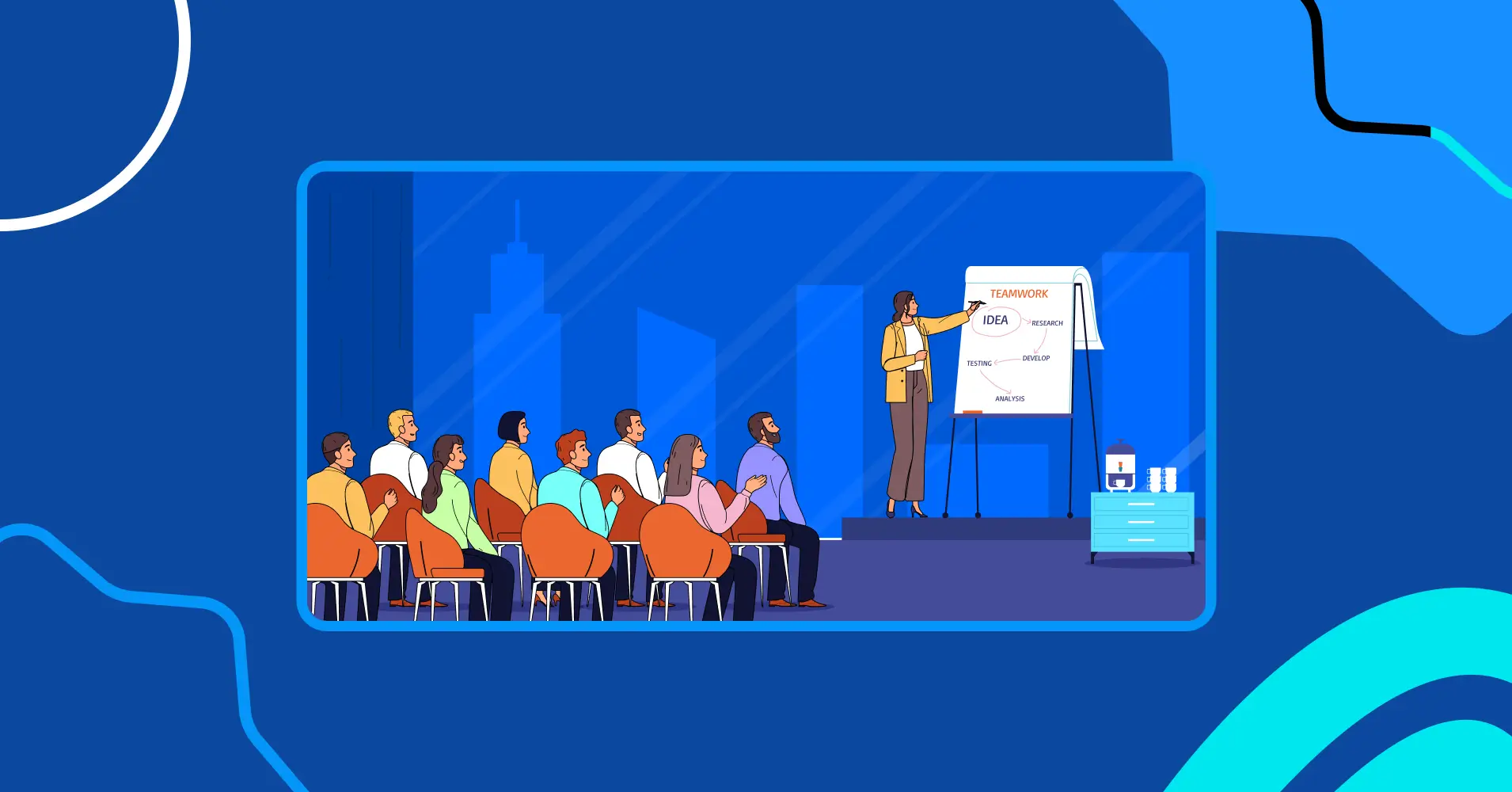
Town Hall Meeting: How to Get the Most Out of Every Session!
Ever wondered why some organizations thrive on open communication while others struggle to connect? The secret often lies in a Town hall meeting.
Town hall meetings aren’t just for show—they’re where real connections happen, ideas get their moment in the spotlight, and everyone’s voice counts. They’re a great way for leaders to engage with employees and gather feedback.
But let’s face it — without proper planning, town hall meetings can quickly become dull and dreaded.
Whether you’re new to town halls or an expert planner, this article covers why they matter and how to make them effective. Plus, you’ll find tips for hosting your best town hall yet. Let’s get started!
What is a Town Hall Meeting?
A town hall meeting (also called an all-hands meeting) is a company-wide session where everyone in the company gathers to get updates and discuss important topics.
These meetings often cover business results, future plans, policy changes, and other key issues. They’re about creating a culture of openness, trust, and collaboration.
Town hall meetings are led by senior leaders or the CEO and can be held in person, online, or in a hybrid format to fit your team’s needs.
Conducting Town Hall Meetings on Zoom: With remote work growing, virtual town hall meetings on Zoom are a great way to keep everyone connected. FluentBooking’s integration with Zoom makes it easy by handling invites, sharing agendas, and managing Zoom links, ensuring smooth meetings for all, wherever they are.
FluentBooking – The Ultimate WordPress Scheduling Solution
What to Include in Your Town Hall Meeting?
Think town halls are just another boring work event? Think again! These gatherings are your opportunity to connect, be authentic, and yes, even have some fun.
Here’s everything you need to include and discuss to make sure your town hall meetings are engaging:
- Start with a Warm Welcome: Kick off the meeting with a friendly introduction from a leader like the CEO, setting a positive tone and appreciating everyone’s attendance. It helps create an inviting atmosphere and sets expectations for the meeting.
- Present Key Updates: Share important business updates on goals, performance, challenges, and policy changes to keep everyone aligned with the company’s direction. This ensures transparency and keeps employees informed about the company’s trajectory.
- Department Presentations: Invite department heads to give brief updates, offering employees insight into how their roles support the company’s overall success. It helps foster collaboration and a deeper understanding across teams.
- Celebrate Achievements: Recognize individual and team successes, from project milestones to personal achievements. This boosts morale and builds a positive culture. Recognizing these moments motivates employees and strengthens appreciation.
- Share Personal News: Celebrate birthdays, work anniversaries, and life events to build a sense of community and show employees they are valued beyond work. These personal touches make the workplace feel more connected and supportive.
- Engage with Q&A: Hold a Q&A session to encourage transparency. Collect questions in advance or take them live, and follow up on any unanswered queries afterward. Doing this in a town hall meeting helps address concerns and builds trust within the organization.
9 Tips for Organizing Effective Town Hall Meetings
A town hall meeting brings everyone to the table—team members, stakeholders, and even customers for open discussions and collaborative planning.
Let us now discuss a few impactful town hall meeting best practices:
Define a Clear Objective
Before planning your town hall meeting, establish clear goals. Determine what you want to accomplish—whether it’s sharing updates, decision-making, addressing concerns, or celebrating successes. Clear objectives will guide your town hall meeting and ensure everyone understands the purpose of the meeting.
Choose the Right Format and Timing
Decide if the meeting will be in-person, virtual, or hybrid. For virtual or hybrid meetings, choose a time that accommodates various time zones if your team is global. Ensure the format aligns with your objectives and facilitates effective participation. Use appointment booking tools to schedule and manage your meetings, accommodating different time zones and formats seamlessly.
Craft a Detailed and Collaborative Agenda
Develop a comprehensive agenda outlining the topics, speakers, and timing for each segment. Include standard updates, special topics, and interactive elements. Share the agenda with your data services team in advance and invite them to contribute ideas to make the meeting more relevant and engaging.
Assign Roles and Responsibilities
To ensure smooth execution, assign specific roles. Designate a moderator to guide the discussion, a tech support person to handle any technical issues, and someone to take notes. Clear roles help manage the meeting efficiently and keep it on track.
Send Out Invitations with Detailed Instructions
Once the date and agenda are finalized, send invitations to all participants. Include the meeting agenda, technical requirements, and any instructions for joining, especially for virtual meetings. FluentBooking can automate this process by sending personalized invitations with all the necessary details, ensuring everyone is well-prepared.
Incorporate Interactive Elements
Engage your audience with interactive features such as live polls, Q&A sessions, and breakout discussions. These elements keep the meeting lively and encourage participation. Use technology to collect real-time feedback and ensure everyone has a chance to contribute.
Test Technology and Equipment
If you are conducting a virtual town hall meeting, thoroughly test all technology and equipment before the meeting. Check your video conferencing software, microphones, cameras, and any other tools you’ll be using. Conduct a trial run to resolve any issues and ensure everything works smoothly on the day of the meeting.
Follow Up with Meeting Minutes and Action Items
After the meeting, distribute a summary of key points, decisions, and action items. This follow-up helps attendees recall important details and track progress on tasks.
Gather Feedback and Assess the Meeting’s Effectiveness
Collect feedback from participants using HR software for small business to understand what went well and what could be improved. Use surveys or feedback forms to gather insights. Assess how well the meeting met its objectives and use this information to enhance future meetings.
A Detailed Town Hall Meeting Agenda
Here’s a detailed agenda to guide you through a productive town hall meeting:
| Agenda Item | Description | Duration | Role |
| Welcome and Intro | Kick off the town hall meeting with a warm welcome, outline the agenda, and set the tone for the discussion. | 5 Mins | CEO |
| Business Update | Share high-level updates on company priorities, progress toward goals, and any strategic changes. | 10 Mins | C-suite Member(s) |
| Recognition Segment | Spotlight and celebrate the achievements and contributions of teams/individuals. | 15 Mins | Designated Leaders or Employee Peers |
| Timely Topic | Present a relevant topic based on current business needs – could include business updates, project status updates, or strategic changes. | 15 mins | Subject Matter Experts |
| Q&A | Open the floor for questions and discussions. Address employee concerns and feedback. | 30 Mins | Leadership Team |
| Closing | Recap key takeaways, outline any action items, and thank everyone for their participation. | 5 Mins | CEO |
Note: In terms of frequency, town hall meetings are usually scheduled monthly or quarterly. They can be as casual as a team lunch or as formal as presentations led by senior leaders.
What are the Benefits of Hosting a Town Hall Meeting?
Town hall meetings are a great way to boost your company’s success. Here are the advantages:
- Clear Communication: Town hall meetings make it easy to share important updates and complex information at once, ensuring everyone is on the same page.
- Team Building: These meetings help the team build stronger relationships among members, fostering a sense of community whether in person or online.
- Engagement and Feedback: They provide a space for employees to voice their opinions and ideas, increasing their involvement and engagement.
- Reinforcing Culture: Town halls highlight company values, celebrate successes, and align everyone with the company’s goals, reinforcing a positive work culture.
- Access to Leadership: Employees get direct access to senior leaders, breaking down barriers and improving transparency within the company.
Additional information: If your team is spread across different time zones, find a time that works for everyone. FluentBooking can effortlessly set your availability for meetings, calls, or appointments and share it with others. It takes care of the time zones so you don’t have to!
Bridge Your Organizational Gap with Town Hall Meetings!
Town hall meetings are important for uniting teams and building trust. They keep everyone informed, bridge gaps between management and staff, and boost morale. Plus, with FluentBooking handling your scheduling and reminders, you’ll keep things running smoothly without a hitch.
So, make your next town hall a chance to connect, share news, celebrate successes, and align your team with company goals. Start planning today and see the difference yourself!
Frequently Asked Questions
Have more questions about Town hall meetings? Don’t worry! We’ve got you covered.
Maisha Abedin
Hey, it’s Maisha! I enjoy crafting stories and producing content that adds value to readers. Outside of work, you will either find me capturing the beauty in the mundane or daydreaming about the perfect lasagna!
Table of Content
Subscribe To Get
WordPress Guides, Tips, and Tutorials








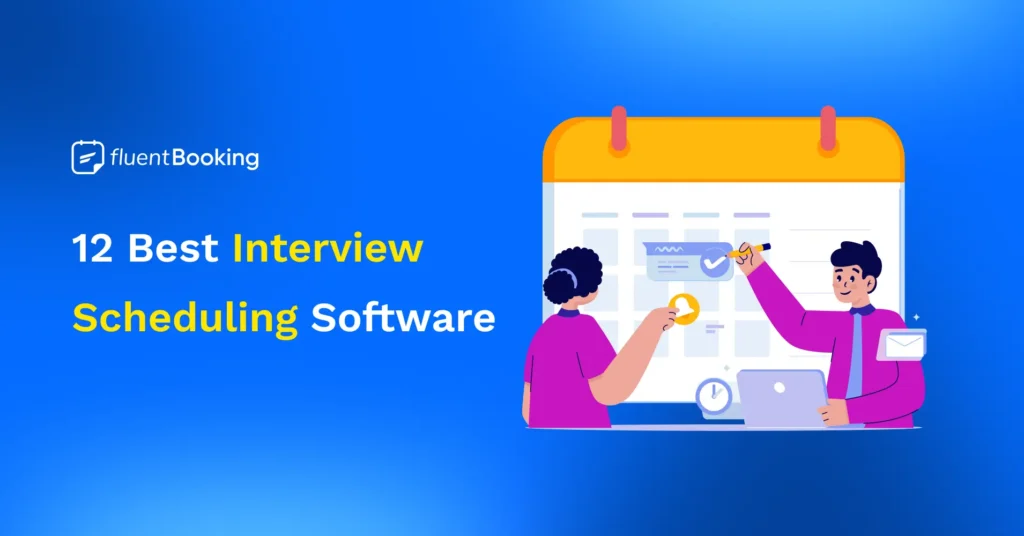
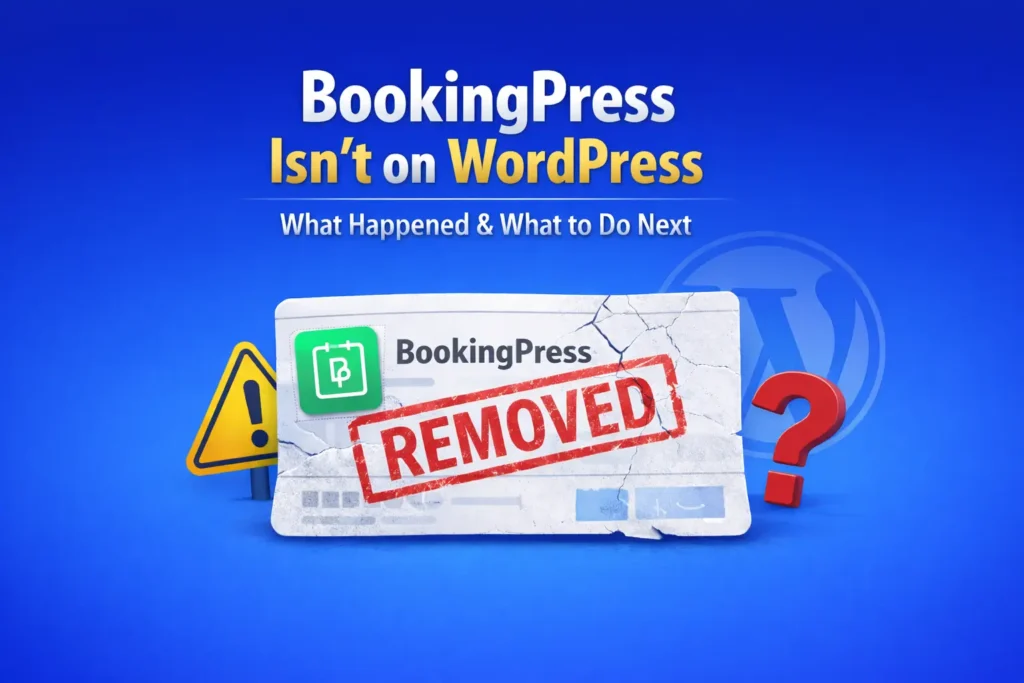
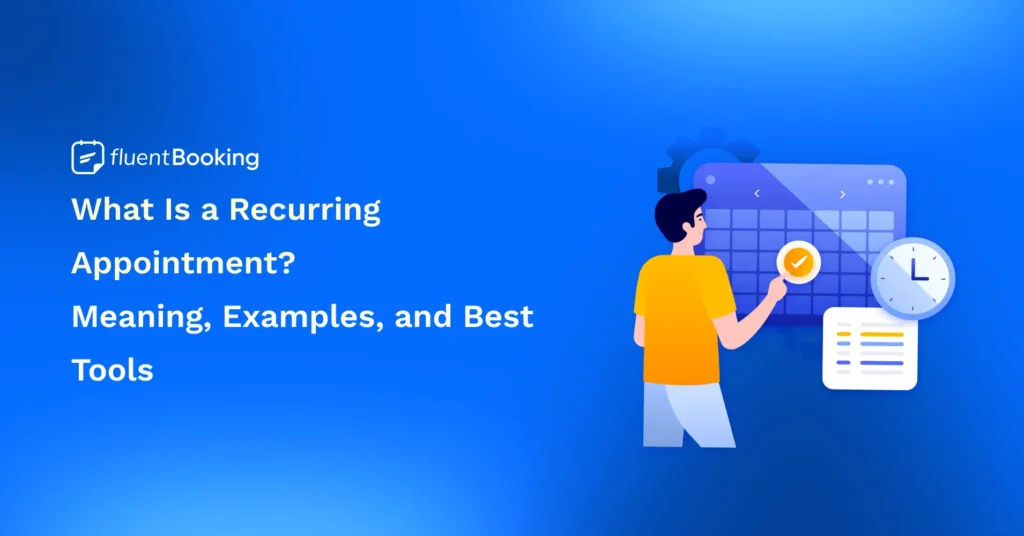
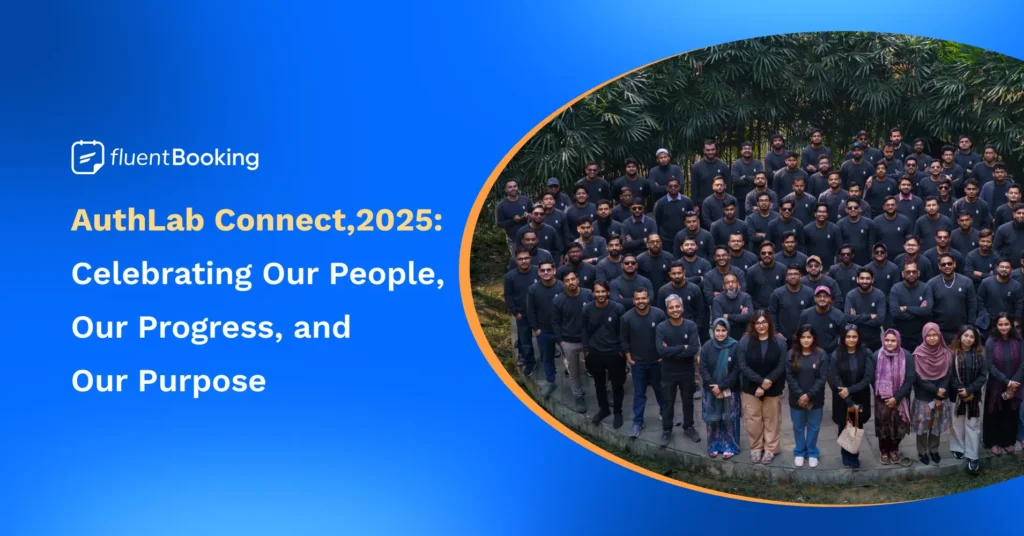
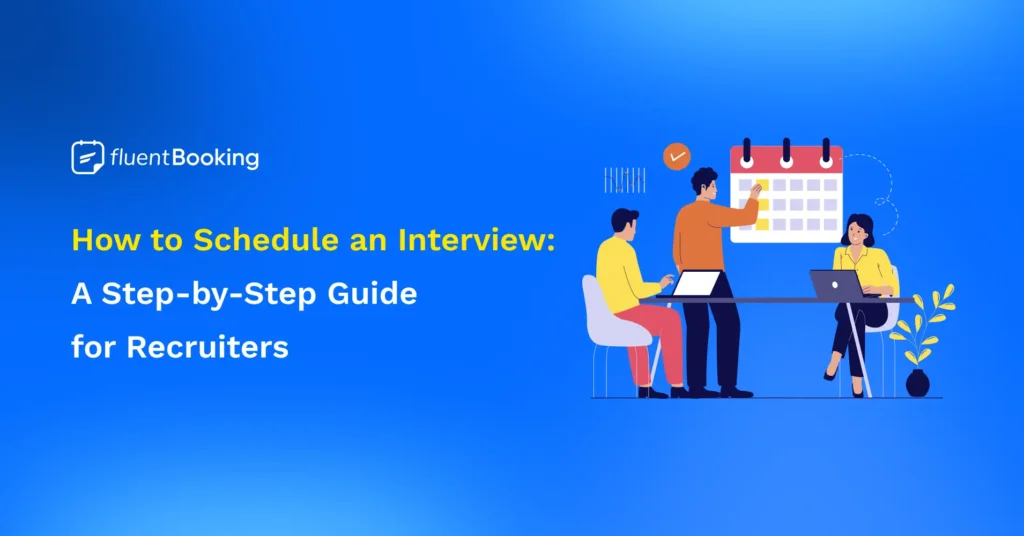
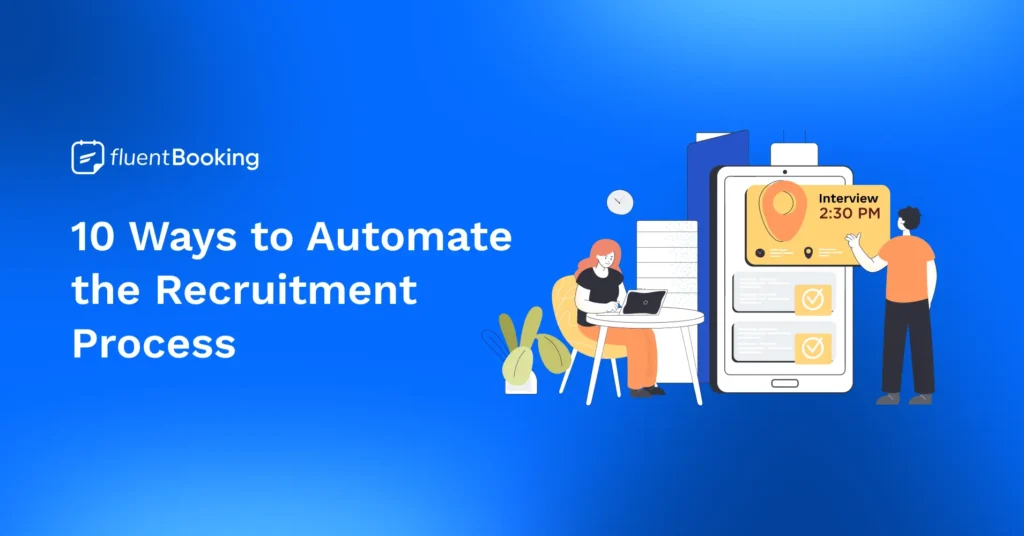
Leave a Reply